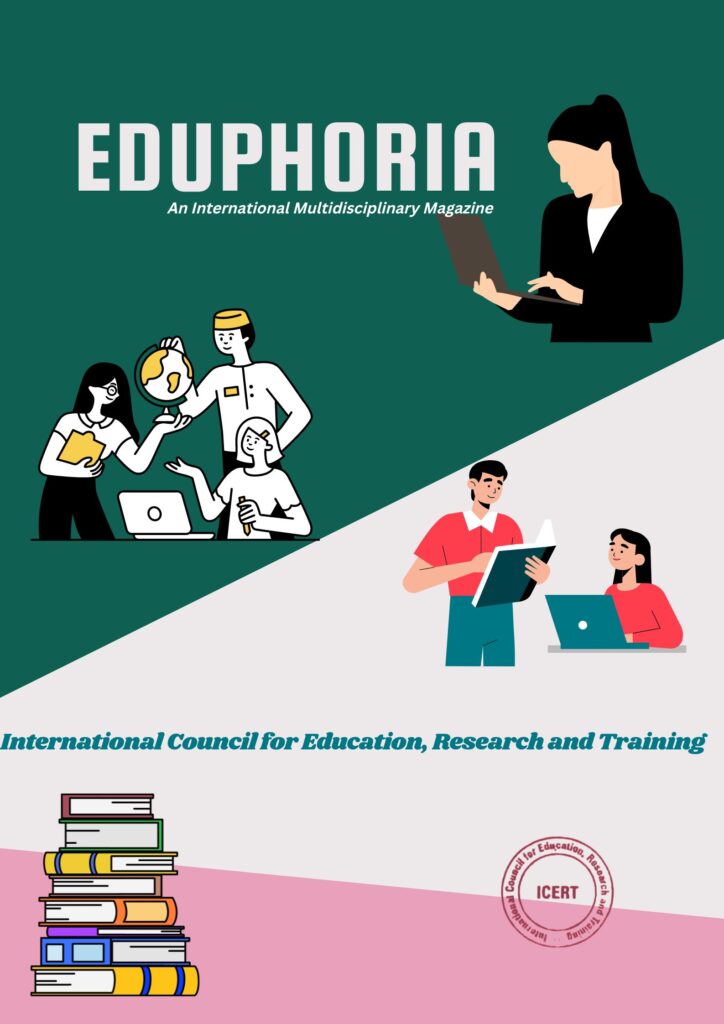Eduphoria - An International Multidisciplinary Magazine
An International scholarly/ academic magazine, peer-reviewed/ refereed magazine, ISSN : 2960-0014
Vol.03, Issue 02 (Apr-Jun 2025)
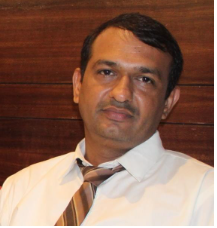
Prof. (Dr) Sandeep Kumar
Secretary
It is with immense pleasure that I extend my heartfelt best wishes to the entire editorial team and all the esteemed authors on the occasion of the publication of Vol 3, Issue 2 of Eduphoria – An International Multidisciplinary Magazine.
On behalf of the International Council for Education Research and Training (ICERT), I commend the editorial team for their tireless dedication, meticulous efforts, and unwavering commitment to maintaining the high standards of scholarship that Eduphoria represents. Your hard work in curating, reviewing, and perfecting each submission is truly appreciated and is instrumental in the continued success of the magazine.

Dr Navneet Kaur
Chief Editor, Eduphoria
A Word of Thanks to Our Editorial Team
To the dedicated members of the editorial team, your unwavering commitment and meticulous attention to detail have been nothing short of exemplary. Every step of the process, from initial submission review to final proofreading, has been executed with precision and a shared vision for excellence. Your tireless efforts are the bedrock upon which Eduphoria’s reputation for quality is built, and for that, I am profoundly grateful.

Dr Dilpreet Kaur,
Editor, Eduphoria
My sincere thanks go out to every member of our dedicated editorial team. Your meticulous work, from the initial screening to
the final proofreading, ensures the high quality that defines Eduphoria. Your commitment to detail and unwavering support are
what make each issue a success. It’s a true privilege to work alongside such a talented and committed group.

Nura Umar Manya | Page No. 6-21
This paper examines the roles of modern agricultural innovations in addressing insecurity in Nigeria primarily in the agricultural sector that comprises crops and animal production. This paper looks at the bedevilled clashes that have been occurring between farmers and herders in Nigerian rural areas over the accessibility of land and water resources. Among other things, the clashes exacerbate food insecurity and socio-economic instability in the country. Therefore, this study explores several innovative approaches in crop cultivation and animal husbandry

Dr Manoj Kumar Singh | Page No. 22-28
As cities expand rapidly across the globe, urban environments are placing increasing pressure on native ecosystems and species. Habitat fragmentation, pollution, and human activity have led to significant declines in biodiversity within metropolitan areas. In response, conservationists and urban planners are turning to innovative tools to monitor and protect wildlife amidst the
concrete jungle. Urbanization poses significant challenges to biodiversity, necessitating innovative solutions for conservation. Artificial Intelligence (AI) has emerged as a transformative force in this field, offering powerful capabilities to analyse complex environmental data, automate biodiversity monitoring, and support evidence-based decision-making.

Dr. Samridhi, Jyoti Yadav | Page No. 29-42
India, being a developing country, needs to focus on progress, where education serves as an important aspect for societal progress and sustainable development. Hence, by aligning its education plans with the Sustainable Development Goals (SDGs), India aims to address many opportunities and challenges. The purpose of this research paper is to explore comprehensively how India’s education plans intersect with the SDGs. Education plays a vital role in the growth of any country. The recent execution of the National Education Policy (NEP) 2020 focuses on
fostering quality, inclusive, and equitable education for all, which directly relates to the 4th goal
of SDG, that is, “Quality Education

Dr. Khushbu, Dr. Nileshkumar L Patel | Page No. 43-50
Human relationships today, personal, familial, and professional, are difficult things fraught with ego, attachment, and misunderstanding. This article explains how the eternal wisdom of the Bhagavad Gita can provide surprisingly deep insights for developing healthier, deeper
relationships. Citing key shlokas (verses), we consider four key lessons: The first one is to combat ego (ahamkara) to reduce conflict, another one is to differentiate between love and possessive attachment (moha), a third one is to perform our duty (karma yoga) with detachment from results, and a fourth one is to perceive the divine in all and thereby infuse compassion.concrete jungle. Urbanization poses significant challenges to biodiversity, necessitating innovative solutions for conservation.

Ayush Soni | Page No. 51-55
Play-based learning has become a key component of early childhood education, providing a dynamic environment for the development of cognitive, social, and emotional skills. This article examines the crucial role that play-based learning plays in helping primary school pupils develop their cognitive skills. Based on educational research and developmental theories, the discussion emphasizes how both structured and unstructured play promotes language
development, critical thinking, memory retention, and problem-solving abilities

M. Amr Sadik | Page No. 56-60
Organizations are often described using metaphors that reflect their internal dynamics, values, and operational styles. One particularly vivid and evocative metaphor is the concept of Inferno as Organizational Culture, a portrayal of a workplace environment that mirrors Dante Alighieri’s “Inferno”, the first part of his “Divine Comedy”. Dante (born c. May 21–June 20, 1265, Florence [Italy]—died September 13/14, 1321, Ravenna) was an Italian poet, prose writer, literary theorist, moral philosopher, and political thinker. He is best known for the monumental epic poem La commedia,
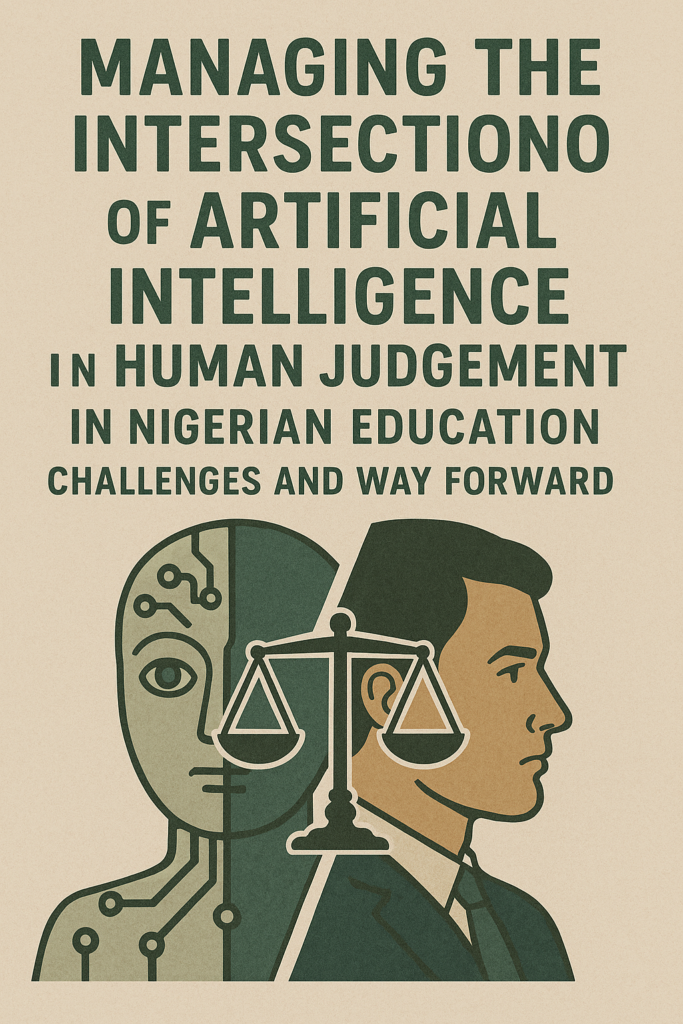
Abdullahi Ibrahim, Shenu Ahmad | Page No. 61-68
Integration of Artificial Intelligence (AI) within education systems is transforming the practice of teaching, learning, as well as decision-making at administrative levels globally. In Nigeria, adoption of AI technology promises vibrant opportunities and subtle challenges, significantly between human and machine intelligence. This article demystifies the dynamic interaction of AI- driven tools and human decision in Nigerian schools. It addresses the potential of AI in driving personalized learning, streamlining administrative tasks, and enabling data-informed policy- making

Abhishek Sharma | Page No. 69-79
Agriculture is a fundamental pillar of global food security and economic stability. However, plant diseases pose a severe threat to agricultural productivity, leading to annual crop losses of up to 40% worldwide. Early detection and management of plant diseases are critical to ensuring sustainable agriculture, minimizing economic loss, and safeguarding food supplies. Traditional disease detection methods rely heavily on manual field inspections, expert consultations, and laboratory analyses, which are time-consuming, costly, and often inaccessible to smallholder farmers.
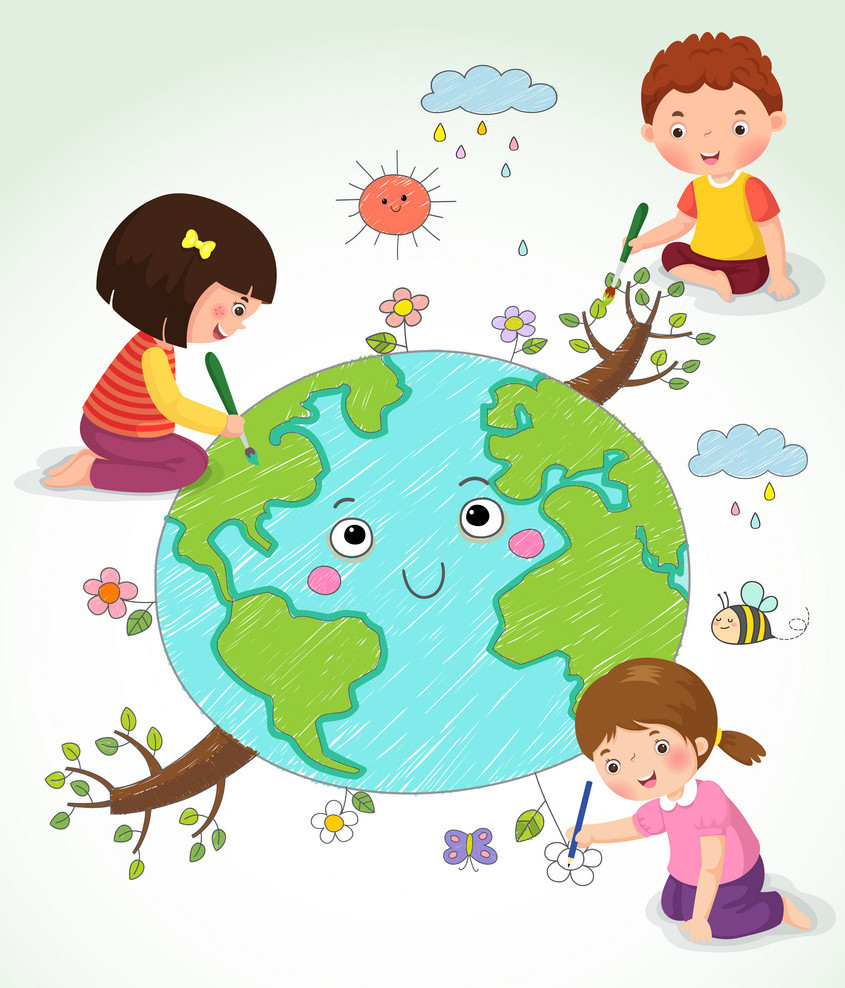
Prof. (Dr) Sandeep Kumar, Dr Manisah D Bhagoji and Dr Simran | Page No. 80-91
This study explores the impact of eco-friendly educational campuses on students’ academic performance and behavioral development. With rising global awareness around sustainability, green campuses are not only reducing environmental footprints but also creating healthier, more engaging learning environments. The study employed a mixed-method approach involving quantitative surveys and qualitative interviews among students from eco-friendly
and conventional campuses.
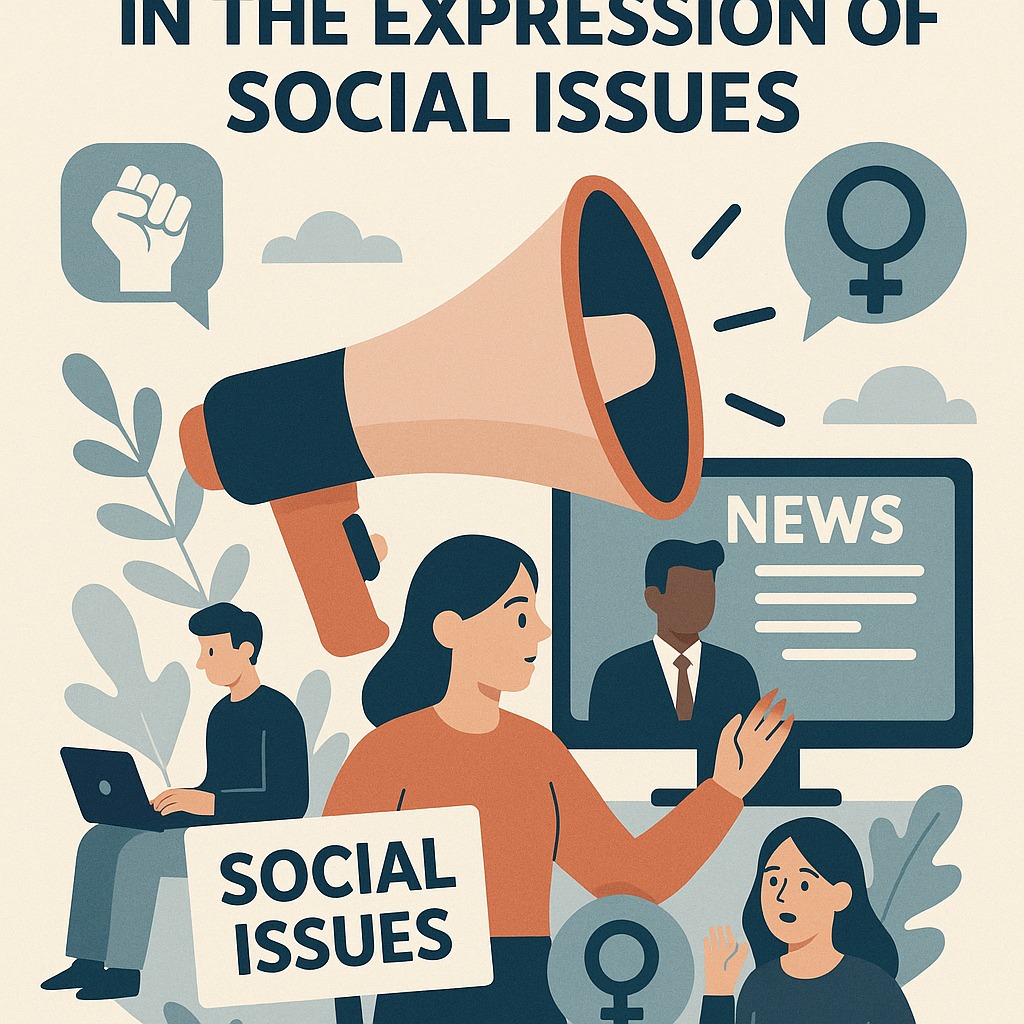
Prof. (Dr) Sandeep Kumar and Dr. Simran | Page No. 92 - 102
The media, in all its evolving forms—from print and broadcast to digital and social platforms— has long served as both a mirror and a catalyst for societal change. This research paper explores the crucial role of media in expressing, amplifying, and shaping public understanding of social issues across different historical and technological contexts. By tracing media’s function from the pamphlets of the Enlightenment to the viral hashtags of today, the paper investigates how media channels bring attention to injustices, influence policy, and mobilize public action. The study integrates historical analysis, contemporary case studies, and data visualization to examine how media representations shape narratives on topics such as civil rights, gender equality, political oppression, environmental crises, and more.
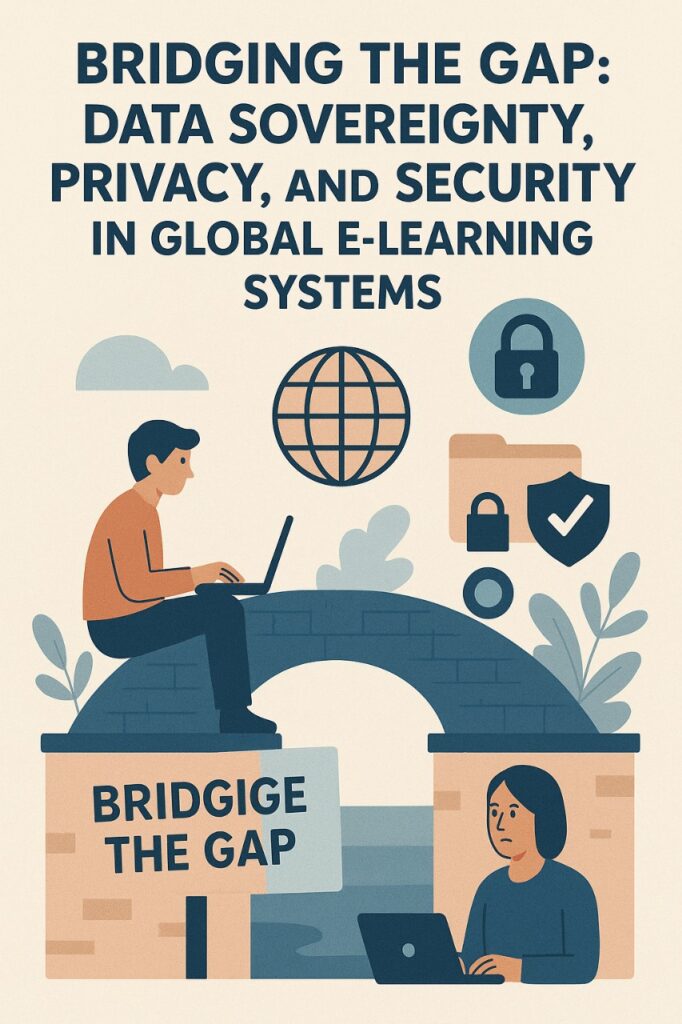
Dr Deepak | Page No. 103 -118
The convergence of digital transformation and educational technology has created unprecedented challenges in managing data sovereignty, privacy, and security across global e- learning platforms. This research examines the complex interplay between these critical factors, revealing that while e-learning platforms offer transformative educational opportunities, they simultaneously present significant vulnerabilities in data governance and cross-border information flows. The study identifies fundamental tensions between national data sovereignty requirements and the inherently global nature of digital education platforms, highlighting the need for comprehensive frameworks that balance regulatory compliance, user privacy protection, and educational accessibility across diverse jurisdictional landscapes.

